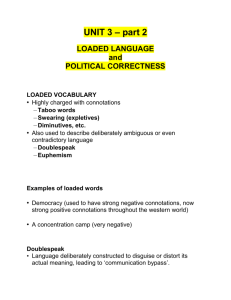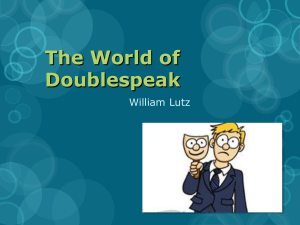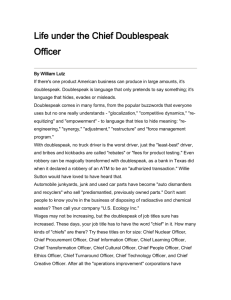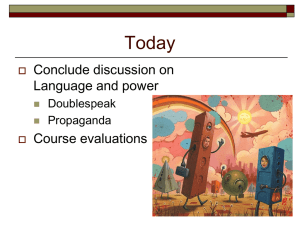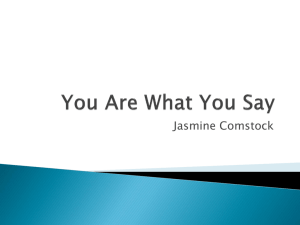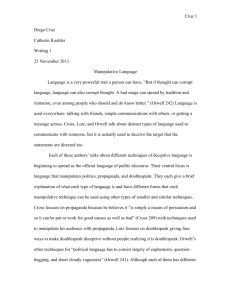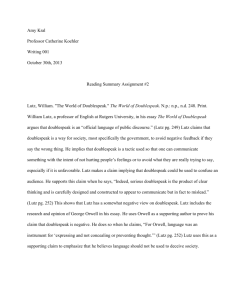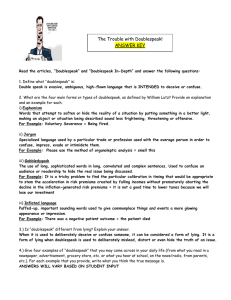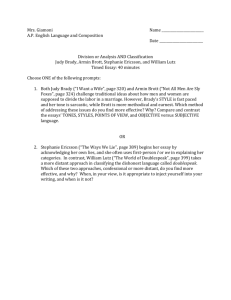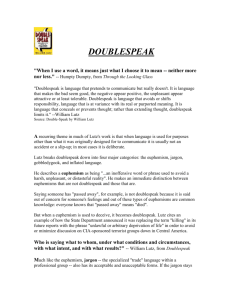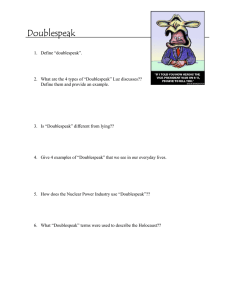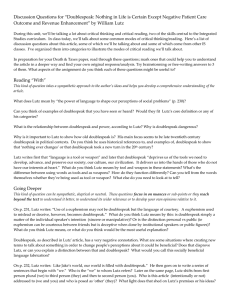Doublespeak
advertisement
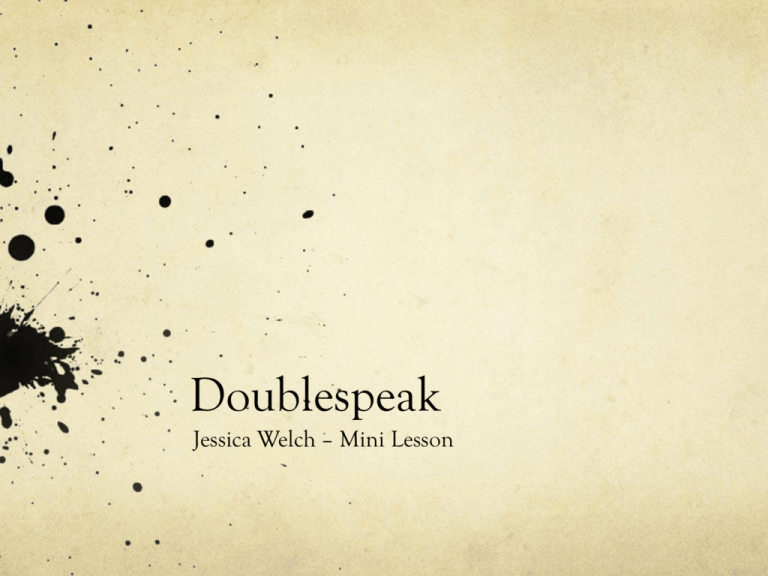
Doublespeak Jessica Welch – Mini Lesson Doublespeak Doublespeak, often called “double talk,” is the distortion, changing or switching of words to make an unpleasant, tricky or otherwise negative situation not sound as awful. Euphemism A mild expression substituted for one considered to be harsh or blunt when referring to something unpleasant or embarrassing. Downsizing Firing people Using the facilities Going to the bathroom Activity Two teams Each team has fourteen words One member from each team will run up to the front and display the word for his team. This will continue till all the words have been guessed. The team who finishes their words the fastest wins. Remember Every member of the team has to run up and participate before team members can run up a second time. Card Readers can give context clues or use the word in a sentence. If a team gets stuck on a word and is not progressing, the Card Reader can put the card on the bottom of the un-guessed pile and sit down so another team member can proceed. Doublespeak Doublespeak, often called “double talk,” is the distortion, changing or switching of words to make an unpleasant, tricky or otherwise negative situation not sound as awful. Doublespeak has become a malignant art for, creating words that obscure or distort their actual meaning. “Similarly, Lutz defends jargon as used by member of a well-defined group so that they can “communicate with each other clearly, efficiently and quickly.” That is, he does not fault lawyers and tax accountants, in conversations with one another, for using terms such as “involuntary conversion” but “when a member of the group uses jargon to communicate with a person outside the group, and uses it knowing that the non-member does not understand such language, then there is doublespeak. Example 1 I ordered the vans of group D to be camouflaged as house-trailers by putting one set of window shutters on each side of the small van and two on each side of the larger vans, such as one often sees on farm houses in the country. The vans became so well-known, that not only the authorities but also the civilian population called the van 'death van', as soon as one of these vehicles appeared. It is my opinion the van cannot be kept secret for any length of time, not even camouflaged. Example 2 I should like to take this opportunity to bring the following to your attention: several commands have had the unloading after the application of gas done by their own men. I brought to the attention of the commanders the immense psychological injuries and damages to their health which that work can have for those men, even if not immediately, at least later on. The men complained to me about headaches which appeared after each unloading. Example 3 The lighting must be better protected against damage than hitherto....It has been suggested that lighting should be dispensed with since they are allegedly never used. However, experience shows that when the rear door is closed and therefore when it becomes dark, the cargo presses hard towards the door....It makes it difficult to latch the door. Furthermore, it has been observed that the noise always begins when the doors are shut presumably because of fear brought on by the darkness. Justification for Taking Doublespeak Seriously: “Even if I cannot prove what I suspect, I would still urge teachers of English to maintain or create prominent places within their curricula for matters related to doublespeak. In so doing, I echo Professor Corbett, who more than thirty years ago called on English teachers to “regard themselves as ex officio members of vigilante committees for the preservation and enhancement of the language” (16). One important reason why I echo this note is that studying doublespeak will lead students to examine some fascinating and powerful samples of language. And once they can identify, understand, and evaluate these samples, they will be better positioned to recognize and work against uses of language that “insult our intelligence, corrupt public discourse, and ultimately undermine that which holds us together as a nation” (Lutz, New Doublespeak 5)
